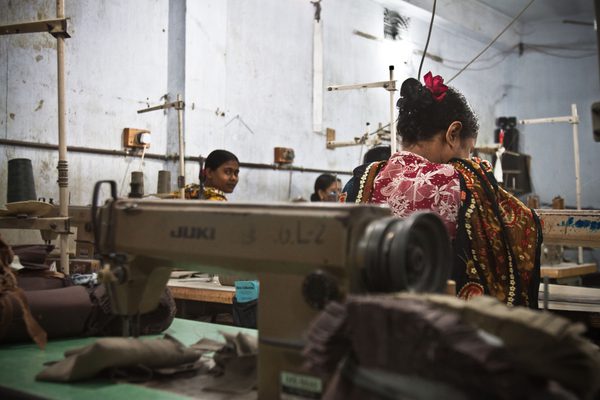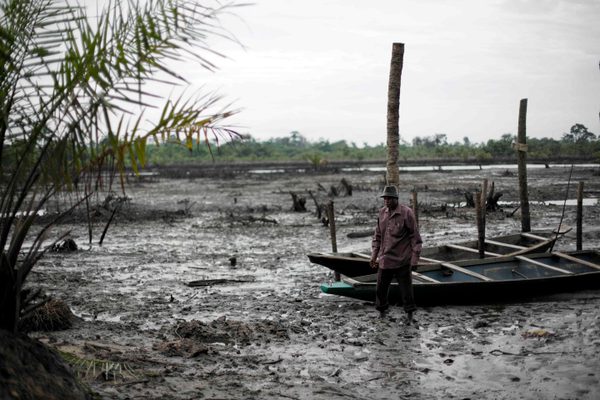Unpacking the UN Pact for the Future. What does it mean for the responsible business agenda?
3 October 2024

Last week in New York, government leaders came together at the start of the annual United Nations (UN) General Assembly to adopt The Pact for the Future. This inter-governmental declaration, despite last minute efforts by a handful of states to derail the negotiations, was presented as “a new beginning in multilateralism”. The agreement was the outcome of a process unofficially launched in 2020 on the UN’s 75th anniversary, and in a 2021 follow up report - Our Common Agenda - put forward by UN Secretary-General Antonio Guterres.
Secretary-General Guterres has repeatedly warned that “multilateral tools and institutions are unable to respond effectively to today’s political, economic, environmental and technological challenges.” Since taking office in 2017 , Guterres, like his predecessors, has stressed the need to recognise shortcomings in international institutions and work for meaningful reforms.
It isn’t an understatement to say the Pact for the Future is part of an all-out effort to reset a strained system of international cooperation. But can any high-level UN statement of this kind make a real difference given the extent of today’s global divides? And what might this initiative mean for ongoing efforts to protect human rights and advance responsible business practices around the world?
Sweeping reforms in uncertain times
Today’s global institutions are clearly under severe stress, and have struggled to reinvent themselves in a time of rapid change and growing divisions. Sweeping proposals for reform, while much needed, may appear out of touch given rising threats of war in the Middle East and other ongoing conflicts, including in Ukraine and beyond, as well as when seen in the context of humanitarian emergencies and mounting realities of the climate crisis.
The new UN Pact ambitiously aims to overcome such obstacles and offer a more hopeful vision, by setting out a total of 56 “actions” for follow up, beginning during the current session of the UN General Assembly. These include for the first time in such a declaration, a clear call for reform of the UN Security Council, “recognizing the urgent need to make it more representative, inclusive, transparent, efficient, effective, democratic and accountable” (Action 39), as well as a renewed commitment to accelerating reforms of the international financial architecture (Action 48).
Two annexes were agreed as well, one on strengthening international cooperation to close digital divides, the other on safeguarding the needs and interests of future generations. Annex one is of particular relevance to the responsible business agenda, and includes commitments to tackle emerging challenges relating to the governance of Artificial Intelligence, to be coordinated by a new Global Digital Compact within the UN system. It calls on digital technology companies, developers and social media platforms to respect human rights online, to take measures to mitigate and prevent abuses, and to provide access to effective remedy in line with the UN Guiding Principles on Business and Human Rights and other relevant frameworks.
Learning from past practice is critical
What is far less clear is how these and the other actions set out in the Pact for Future should be implemented. Commentators warn that repeatedly making such commitments without real convictions to follow up “at best do no harm and at worst undermine the very multilateral system that they aim to bolster.”
Determining effective pathways forward is critical. That means learning lessons from UN actions over the past decade, specifically those contained in the 2030 Development Agenda and the Paris Climate Change Agreement. Both reflect initial attempts to move away from traditional top-down state to state strategies for addressing global problems, and towards greater coordination and involvement with businesses, civil society and other non-state actors.
This can be seen, for example, in the 2015 UN Sustainable Development Goals (SDGs), which stress the critical role of “multi-stakeholder partnerships” as pragmatic, solution-oriented ways of working to achieve shared aims at a time of scarce public resources.
The record to date is mixed in terms of making such partnerships work in ways that empower people and address inequalities head on. If partnerships aren’t properly managed, they can actually reinforce existing power imbalances within societies. And if governments focus only on the goals of most interest to the private sector – on infrastructure, for example – other critical problems such as youth employment and decent jobs, critical for social stability, may not receive the attention needed. Follow up efforts to implement the Pact for the Future should keep these lessons front and centre as new programs and partnerships are designed and tested.
And in the context of climate change, the Paris Agreement has focused on nationally determined commitments that should scale up over time, alongside robust reporting and peer review. This approach also makes space for engagement by stakeholders outside formal state negotiations, including companies critical to effective climate action such as those from the energy sector. The jury is still out on these approaches, but as our own work at IHRB highlights, there remains real gaps in addressing risks for workers and communities involved in the complex transitions required for a more sustainable future. These can only be addressed effectively when all involved, including corporate leaders and financial actors, are committed to protecting the rights of people impacted at all levels.
Business leaders need to step up
In the months ahead, business leaders will be asked to make clear how they will contribute to meeting the commitments set out in the Pact for the Future. Statements from the 2024 UN Private Sector Forum are promising starts, but it is critical to recognise that many actions agreed by governments will require extensive and long-term business involvement. For example:
- ensuring that food and agriculture supply chains become more resilient to shocks (Action 3);
- phasing out fossil fuel subsidies more quickly and strengthening private sector investments in sustainable development and responses to climate action (Action 9);
- taking more ambitious actions to improve the health and sustainable use of oceans and their ecosystems, including circular economy approaches as a pathway to sustainable consumption, production and zero-waste initiatives, as well as stepping up maritime security and safety (Action 10);
- addressing risks to sustaining peace posed by disinformation, misinformation, hate speech and content inciting harm, including content disseminated through digital platforms, as well as addressing threats posed by the misuse of emerging technologies, including artificial intelligence, financial instruments, and lethal autonomous weapons systems (Action 18) and;
- expanding private sector investment in science, technology and innovation, including stronger public-private partnerships that include effective governance and accountability mechanisms for all involved (Action 29).
Living up to these commitments will clearly require “all hands on deck” and actions to integrate human rights due diligence across business operations on a scale not previously seen. As two former heads of state, Ellen Johnson-Sirleaf and Mary Robinson, in their roles as co-presidents of the Africa-Europe Foundation have stressed:
“The future can’t wait for solutions to these pressing issues…Multiple commitments are not being met, double standards are rife, and too many governments are back-sliding on promises on finance, climate and inclusion…let’s look for win-win partnership - built on equal footing, mutual learning and interests, and shared opportunities…Proven tools already exist. We must have the ambition to implement them.”




